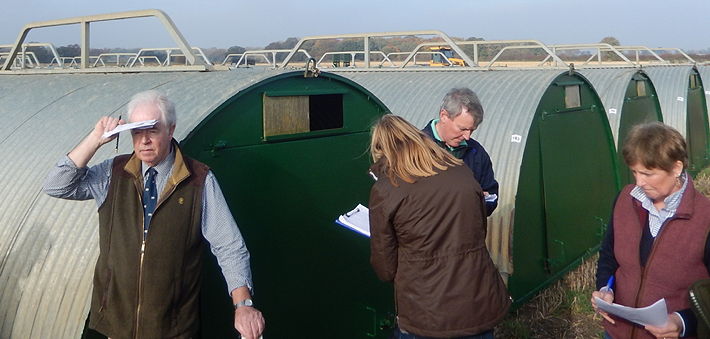The SPP continues to rise albeit at a snail’s pace up by 0.19p this week to stand at a new record high of 200.55p, but unfortunately feed prices are also at record high levels!
It is also very much of a stand on situation in Europe where producer prices are tending to tread water and the latest influential German producer price is quoted at 2.00 EUR, which is equivalent to 173p/kg.
Very little movement in UK weekly contribution prices with the three big players still stuck in the doldrums between 1.73p/kg at the bottom end and 190p/kg at the top, but still a country mile from where they should be in relation to the SPP and other index prices – unfortunately contribution prices are currently acting as more of a brake than an accelerator.
Spot bacon demand remains patchy but the feedback from meat processors is that pork mince demand is better than for the rest of the pig.
Perhaps the long awaited shortage of pig numbers will start to make itself felt, but the root of the problem is very poor retail demand with consumers looking to save their pennies at the meat counter.
Cull Sows
Unfortunately, cull sow values have taken a significant downward step which does not paint a particularly good picture for manufacturing pig meat prices across Europe especially in the build up to Christmas.
With UK cull sow export buyers cutting their bids by 5p/kg, most culls traded between 69p/kg and 74p/kg, not helped by a weaker Euro, which has slipped from 87.5p seven days ago to 86.4p today, and the last thing producers can afford at present is a strengthening Pound knocking spots off the value of the Euro as far as the import/export balance for pig meat is concerned.
Weaners
With the SPP hardly moving weaner values have generally remained at similar levels due to ongoing worries about production costs and no signs yet of a revival in finished pig prices further down the line.
Feed Market Trends
News that Russia is not prepared to agree to an extension of the grain corridor has cast another black cloud over the industry, which will almost certainly push up grain and protein prices and put pig producers under yet more financial pressure.
Closer to home the latest weekly UK spot ex farm feed wheat average is marginally dearer at £270.70/t and futures prices are little changed on the week with November feed wheat deals agreed at £281/t and longer months saw September 2023 traded at £271/t. Feed barley prices have reflected these trends at £259/t for November and £256/t in twelve months time.
Protein prices remain bullish with Hipro soya for November – April 2023 at £522/t and May – October 2023 looking expensive at £485/t. Rapemeal ended the week at £364/t for November – January 2023 with February – April 2023 slightly dearer at £367/t.
And finally…
As if there was not enough to worry about, further reports of African Swine Fever cutting a swathe through parts of Europe are a timely warning of the need for all pig producers to maintain the highest possible biosecurity controls with several hundred cases of ASF in Romania reported including on some large farms and this could easily spread further. There have also been new outbreaks in Germany and Italy causing particular concern.
Although there are signs of EU pig numbers continuing to decline, according to recent reports they now account for around 60% of pig meat imports to the UK. Bearing in mind that the average EU reference price stands at around 187p/kg, this compares with UK reference prices of 200p/kg and it remains difficult for domestic pig producers to continue to face soaring losses at a time when COP levels keep rising.
The flood of imports continues to undercut the domestic market, so it looks as though there is more pain before we see any significant long term gains in the profitability of the beleaguered UK pig industry.




